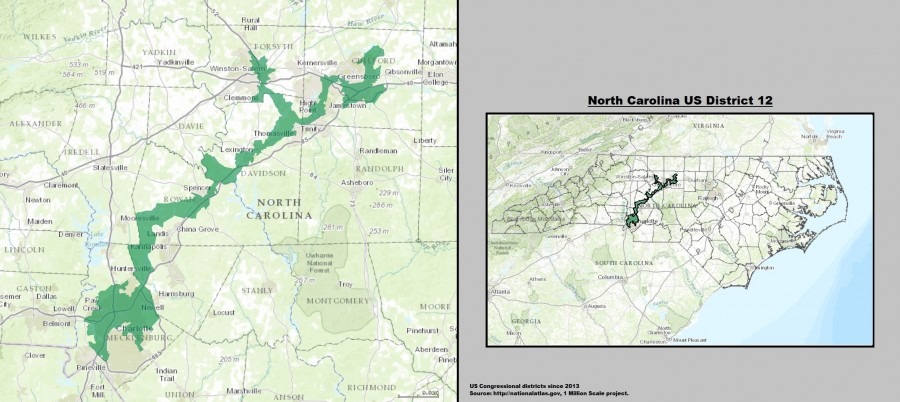North Carolina's primaries are in jeopardy after a federal judicial ruling declared two congressional districts unconstitutional due to racial gerrymandering. The Tar Heel State planned to hold primaries on March 15 and even started sending out absentee ballots, but now everything is up in the air.
Last Friday a panel of three federal judges ruled that Districts 1 and 12 were drawn based on race. The state was given two weeks to redraw the districts. But the state challenged the ruling because the primary election period has commenced, with thousands of absentee ballots already released and hundreds returned, making it at best inconvenient, and at worst unfeasible, to redraw districts.
North Carolina requested a stay of the ruling until the end of the primary cycle, which was promptly denied by the Federal Court. The state is now appealing to the US Supreme Court. North Carolina is barred from holding any elections until the districts are redrawn under the current ruling.
This is not the first time District 12 has been the subject of litigation. State Democrats had originally drawn the district lines to capture certain demographics to support their party. This was not ruled unconstitutional, however, as the courts allow partisan redistricting. The more recent 2011 Republican-led redistricting is considered a racial gerrymander (and therefore unconstitutional) because the percentage of black voters jumped from 43.8 percent to 50.7.
"Such a consistent and whopping increase makes it clear that the general assembly's predominant intent regarding district 12 was also race," Circuit Judge Roger Gregory wrote for the majority.
When North Carolina moved to change the primary date to March from May at the end of the 2015 legislative session, opponents in the General Assembly pushed back on the change citing the pending lawsuit as a reason to keep May date. The legislative record clearly indicates that the legislators were warned and decided to keep the March date, weakening their argument that the court has placed an unreasonable burden on the state in the middle of the election cycle.
The question of partisan versus racial gerrymander is challenging, especially in southern states. Analysts across the country are offering their opinion that the two issues are too closely aligned where race relations cause friction in a state. Alabama, Virginia, Florida and Georgia are also legally fighting gerrymanders based on the same question.
